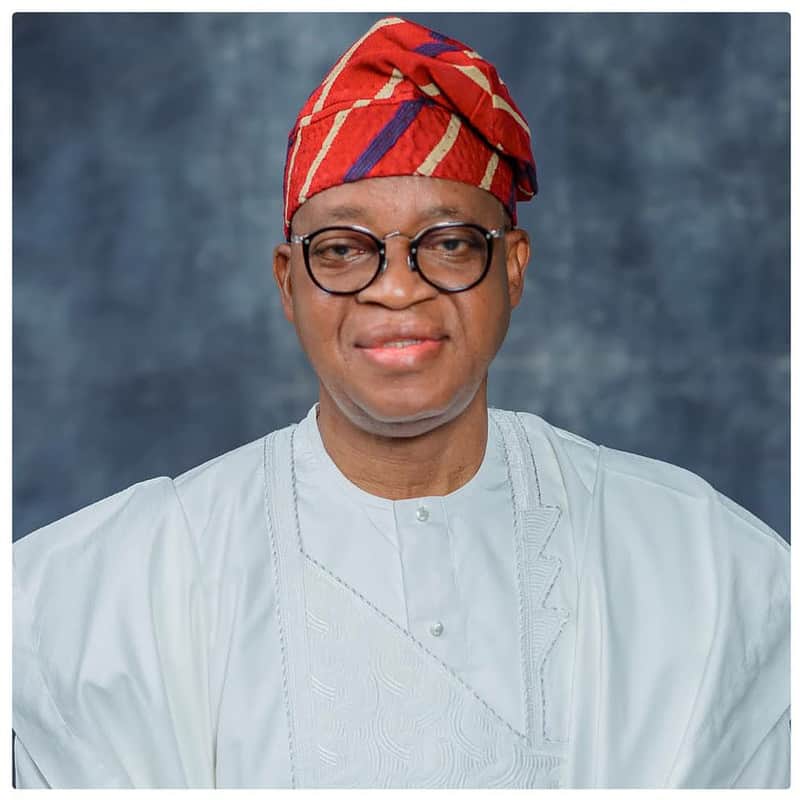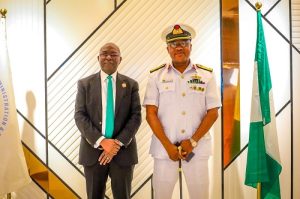Our Concern Is Shippers’ Protection in New NSC Act, Says Maritime Advocacy Foundation

OYETOLA
Public hearing not shifted, still holds – Chairman House Committee on Shipping Services
By Francis Ugwoke
The Maritime Advocacy Foundation (MAF) has said that its concern in the proposed amendment of the Nigerian Shippers Council Act is simply the protection of the interest of Nigerian shippers considering the peculiar nature of the nation’s shipping industry.
This was as public hearing on the new NSC Act holds on Monday as against earlier report that it had been shifted.
A member of the Maritime Advocacy Foundation, Dr. Eugene Nweke, said his group wants a situation in which the Nigerian Shippers Council (NSC) is fully protected and given more powers as it has been seeking over the years for the best interest of the shipping sector.
Nweke said that his Foundation welcomes the planned amendment of the Act as it will usher in best port economic regulation under the statutory obligation of the NSC to give every stakeholder sound and equal footing to operate.
He said that what is important is for the NSC to be strengthened with more powers to bark and act like a watch dog and not to be manipulated by some few powerful shipping service providers.
Nweke spoke in response to earlier confusion that the new Nigerian Shippers’ Council Act was different from what was on the ground and being championed to give the NSC more powers to act.
It has since been established that the new NSC is the same and that there is no hidden agenda to set the ports economic regulator aside or strip it of its statutory obligations against the interest of Nigerian shippers.
The concern of industry stakeholders has been that with such situation, the NSC will loose trillions of Naira refund from some shipping service providers awarded by the Federal High Court over illegal shipping charges.
It would be recalled that the shipping service providers had dragged the NSC to court questioning its powers to suspend collection of some charges the Council had described as illegal.
However, the Shipping service providers lost the case in the Federal High Court about 10 years ago and were ordered to pay about a trillion Naira to the NSC and shippers association that are parties in the case.
The Service providers who were not satisfied with the judgement had appealed against the judgment in the Appeal Court where they also lost before proceeding to the Supreme Court.
Indications are that there have been efforts to settle out of court, a move initiated by some of the service providers but the parties have not agreed on the terms.
Stakeholders have since been apprehensive that some ‘economic hit men’ may afterall be plotting to ensure that the NSC will no longer be in a position to collect the judgment debt awarded by the Federal High Court which is currently a subject of appeal in the Supreme Court.
On the protection of Nigerian shippers, Nweke said, “shippers are the reasons job creation thrives evenly across globe. The nomenclature known as import and export data are purely the making of the shippers.
“By global recognition, international conventions have been severally reviewed to cushion the transport intricacies between the ship owner(shipping lines) and cargo owner ( shippers). The established slogan of the World Trade Organizationis is to the effect that trade has become the instrument of promoting global peace not just economic activities. In this regards, the respect and interests of the shippers is paramount.
“It is on record that, without the shippers no freight markets and without freight markets no transport activities across modes.
“Permit us to state in specific terms that, apart from the provisions of the shippers rights in the Marine Insurance Act of 1909, three principal international surface transport conventions have evolved over the decades to streamline interests between the ship owner and cargo owner. These are: The Hague and Hague- Visby Rules and Hamburg Rules to cover all forms of sea transport, the Contract of international carriage of goods by Road – CMR Convention for road transport and the Convention Relative Aux Transports International Ferroviares – CIM/COTIF Convention for rail transport.
“In essence, these conventions address the shippers’ scope of documentary requirements, application, obligations, rights, compensation, insurances, liabilities, etc.
“Equally, we wish to state here that, in the global placement while the World Shipping Council(WSC) focuses on issues affecting the liner shipping industry, it’s also redirecting its focus on ways to improve maritime security and support the establishment of a global environmental standards for the shipping industry, similarly, the Universal Shippers Council (USC)focuses on issues affecting shippers across international frontiers, especially protecting both their rights, cargo and financial investment/transaction interests, etc”.
Nweke pointed out national efforts of the government to protect the interest of the Nigerian shippers, arguing that the “Shippers Council in other West and Central African countries involves in cargo sharing, which is not the case in our dear country, rather our shippers Council takes care of Shippers’ interests.
Meanwhile, the National Assembly is going ahead with the public hearing on Monday, Mary 27, according to the Chairman, House Committee on Shipping Services.
This was against earlier report quoting a letter signed by Delupe Abiodun Duraj, the Clerk of the Committee saying it had been postponed based on a letter to the Minister of the Marine and Blue Economy.
But stakeholders many stakeholders are already in Abuja to participate in the public hearing.





